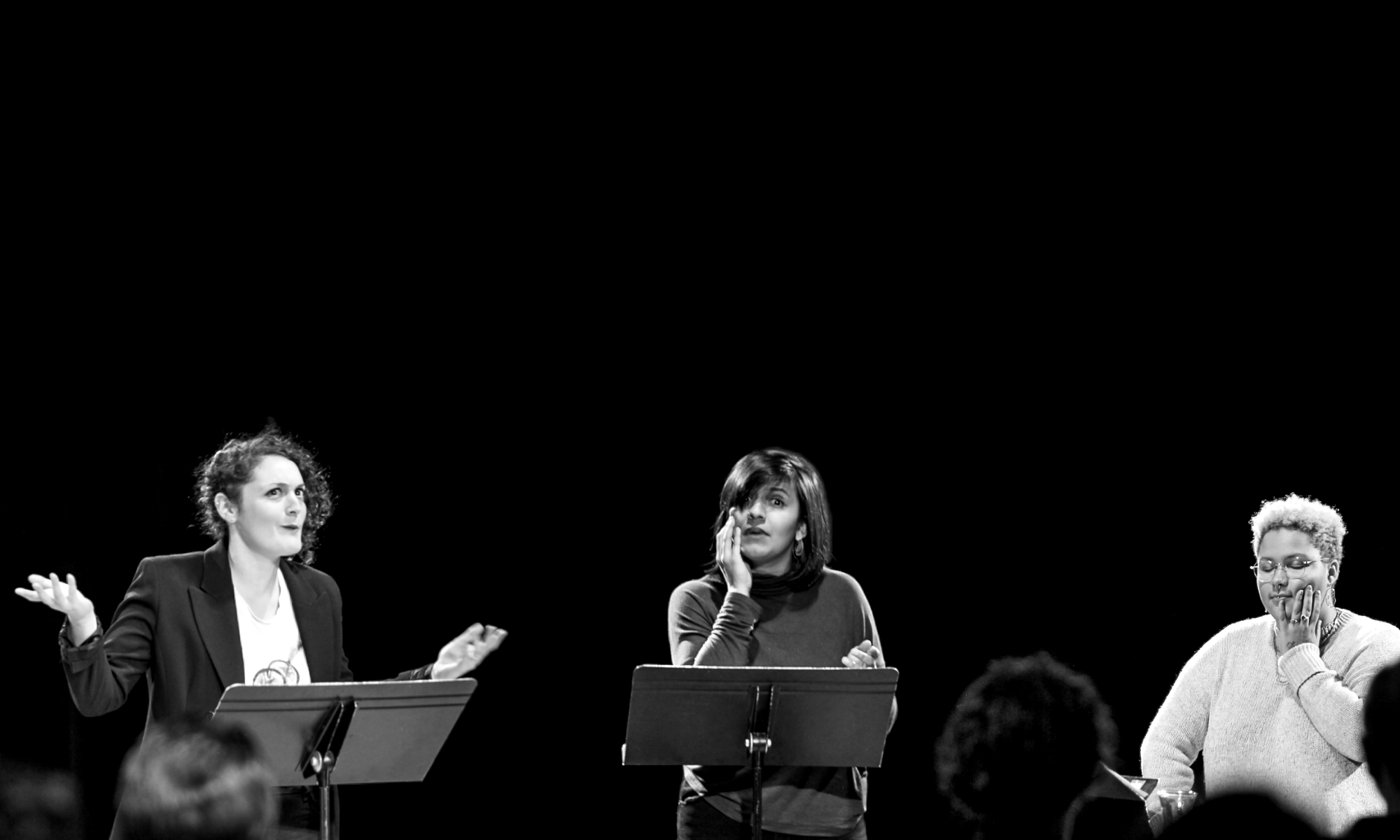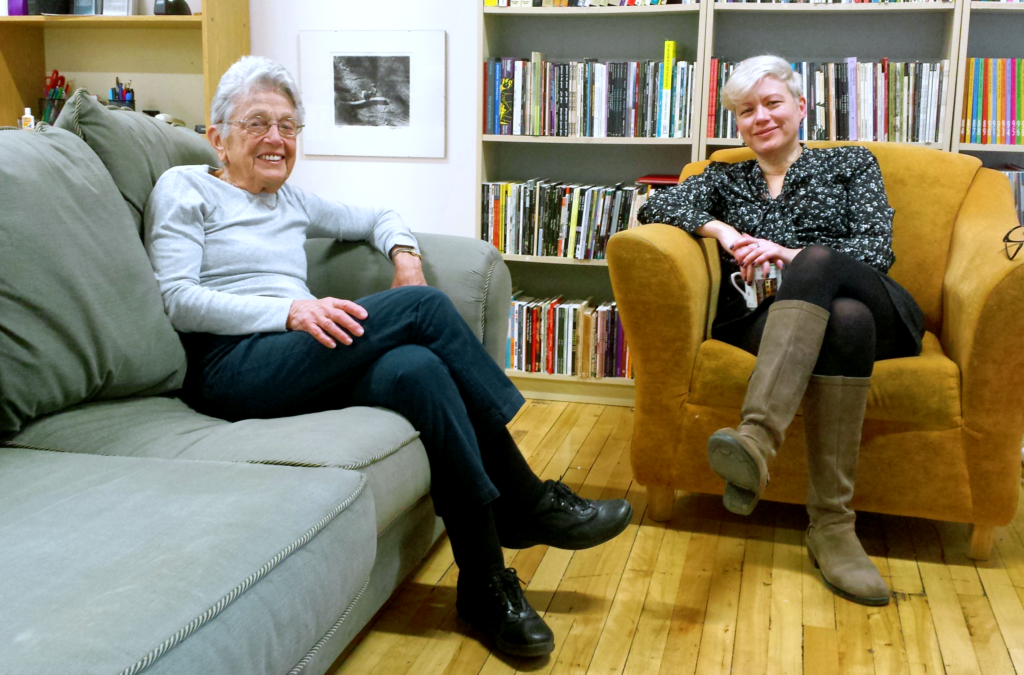Playwrights’ Workshop Montréal is introducing a new micro-residency program focusing on digital dramaturgy.
Applications are now closed.
Building upon months of online workshops, and various forms of digital theatrical experimentation, PWM is excited to introduce our new micro-residency program: Experimentation in Digital Creation!
This program is open to any theatre project that has digital elements to explore— whether the plan is to present them virtually, in-person, or disseminated in a hybrid-fashion (partly online and partly in-person).
We will be inviting selected artists from across Canada to experiment with us for 3 to 5 days, depending on the needs of their project. Residencies will take place at some point between January and August 2022.
Artists will will have access to our studio, equipment, and PWM’s dramaturgs— including digital dramaturgs and multi-media creators potatoCakes_digital, who are leading this exciting project!
Together, we will create a digital dramaturgy process centred on our resident artists and their exploratory questions.
PWM promotes equity and encourages applicants to indicate if they self-identify as belonging to one or more equity priority groups: women, racialized persons, 2SLGBTQQIPAA+, Indigenous persons, refugees, recent and first-generation immigrants not belonging to the dominant cultures in their areas, d/Deaf persons, neurodivergent persons, disabled persons, emerging artists, persons living with chronic illness, persons living with chronic pain, if they feel comfortable doing so.
This program was created for folks who are interested in experimenting with new digital art forms. The projects are ideally in the early to mid-stages of development and are in a place to benefit from exploration with different tools and form.
PWM is a versatile blackbox studio equipped with:
- Video Equipment (Cameras, switcher, projectors)
- VR equipment (Vive Pro2 & Oculus Quest 2)
- Lighting
- Podcasting microphones
- Virtual conferencing
- Greenscreen
- Other equipment will be sourced by PWM depending on each project’s individual needs
For our full tech rider and available equipment, click here.
Given the knowledge-sharing component of this initiative, prospective participants should be aware that there will be documentation of the digital dramaturgical process that will be shared publicly on our website.
APPLICATION PROCESS
To apply, please complete the online application form. During the application process, you will be asked to include the following:
- A description of the project (max. 500 words);
- An artistic statement in relation to the integration of digital tools;
- The names of the project’s collaborators, and their creative disciplines;
- The stage of the work in progress;
- Your dramaturgical questions being investigated, or what you are investigating;
- The technologies you are presently using for the project (if any);
- The technologies you wish you had access to for this project (if known);
- The knowledge gaps (if you know them) in relation to transforming the work to a digital platform;
- Any documentation you deem appropriate to the project, sending video files as links.
Audio or video applications are welcomed.
PROJECT SUPPORTED BY

THE DIGITAL DRAMATURGY CLINIC IS FUNDED BY THE SECRETARIAT FOR RELATIONS WITH ENGLISH-SPEAKING QUEBECERS





































